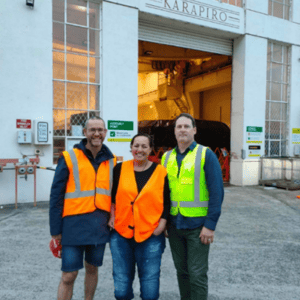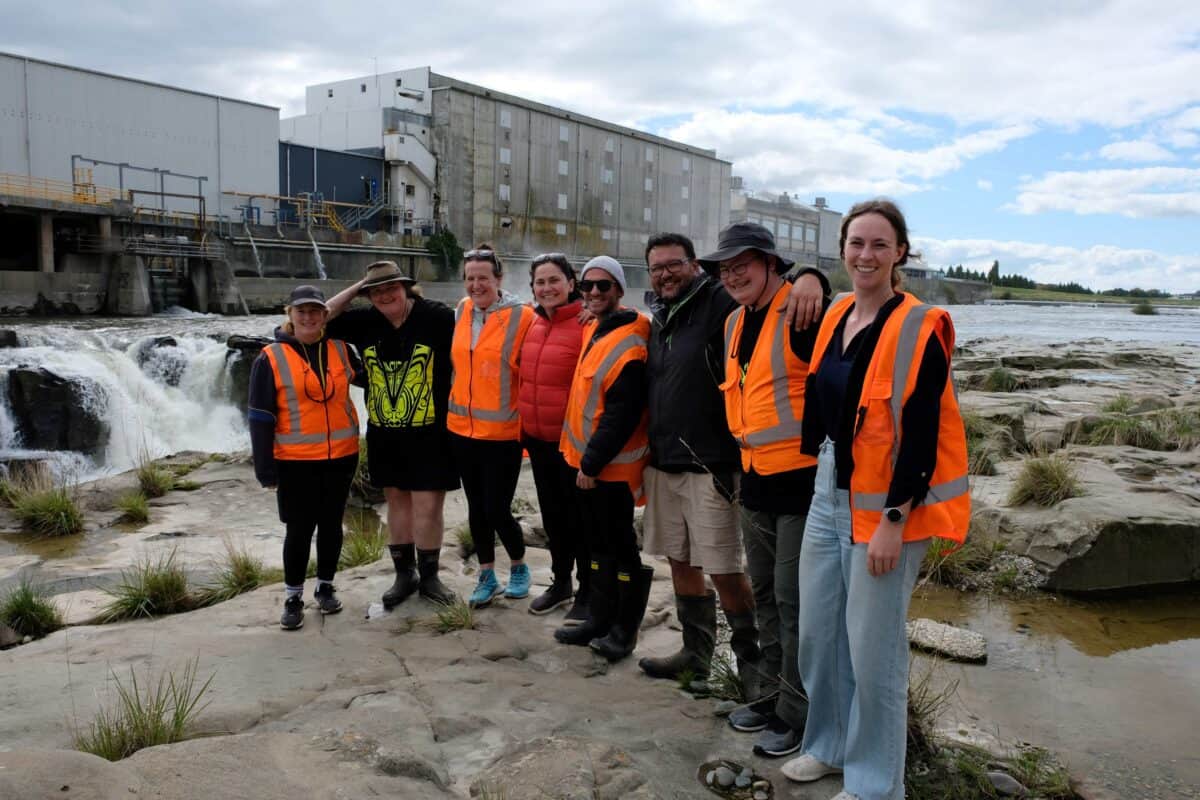Jane Kitson
Kitson Consulting Ltd
Te Tiriti-led research looking at how we can enable our freshwater taonga to thrive.
The state of our freshwater continues to decline around the country. While many research programmes look at how to reverse this trend using attributes of the waterway (riparian planting, stream contour etc.), few are investigating the role of living components of the restoration process – many of which are taonga species.
To enable our native species to thrive, BioHeritage has invested in Te Tiriti o Waitangi-led research that promises to marry traditional knowledge and new, cutting-edge research. Both kaupapa Māori-led projects build on existing work and relationships and aim to refine and accelerate research and management outcomes determined at place by respective whānau, hapū and iwi.
Freshwater for our Taonga interweaves themes of improved restoration outcomes and enhanced mauri/health of Tuna and Kanakana/Piharau across three aligned research areas:
Te Karanga o Ngā Tuna – Mana Whakahaere in Action explores ground-up multi-iwi collaborative local aspirations and solutions to protect, restore, and enhance Tuna for the benefit of the Tuna and future generations in the Waikato and Waipaa catchment. Waikato-Tainui is the host entity, supporting a collective of Waikato/Waipa Catchment River Iwi and haapu undertaking the work.
The voice of taonga species, using an indicator species (kanakana/piharau) for reversing the decline of mahinga kai seeks to connect current freshwater research and mahi conducted by Hokonui Rūnanga and others with interests in kanakana to provide a pathway to future research, monitoring, and restoration of Mahika kai kanakana. Hokonui Rūnanga and Kitson Consulting are the host entities.
Centering biotic interactions in freshwater restoration advances knowledge of biotic interactions in freshwater restoration, thereby identifying effective actions for species recovery. This research area complements both kaupapa Māori-led research areas through frameworks that address key ecological and social barriers to restoration success and will recommend tools/actions for more successful future restoration outcomes. University of Canterbury / Te Whare Wānanga o Waitaha is the host entity.
Waikato/Waipa Catchment River Iwi and haapu (Maniapoto, Waikato-Tainui, Raukawa, Ngāti Koroki Kahukura) held a ‘Partnership elver release’ at Karapiro, 10 March. The event was coordinated and attended by Erina Watene, Te Karanga o Ngā Tuna – Mana Whakahaere in Action Research Lead and attended by Challenge co-Directors Shaun Ogilvie (Kaihautū Ngātahi) and Daniel Patrick. It was an opportunity to collectively acknowledge the desire of River Iwi and haapu to continue collaborating regarding tuna management over the whole Waikato and Waipaa catchment and their important work identifying and implementing iwi-led tuna management aspirations through the development of Te Oranga o ngaa Tuna strategy.

Researchers from two teams convened for a one-day wānanga at the office of Hokonui Rūnanga and visited potential kanakana sites within the Mataura Catchment. Their wānanga concluded at Te Au-Nui-Pihapiha-Kanakana (Mataura Falls), a significant site for cultural harvest of kanakana. The area is heavily modified, with industry and hydro-generation schemes on both sides of the awa, and the catchment has been modified with intensive agriculture, urbanisation (Mataura and Gore) and flood control schemes. The opportunity to meet kanohi ki te kanohi at place was particularly important to strengthen the relationships and linkages between the two programmes. It was also a critical step toward appreciating the challenges inherent in developing tools to support the restoration of Mahika kai kanakana within the Mataura.
